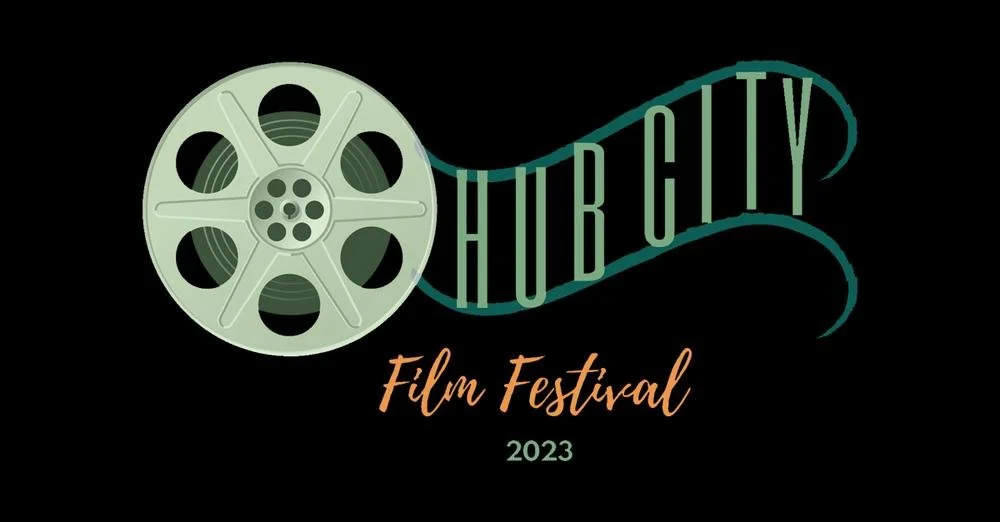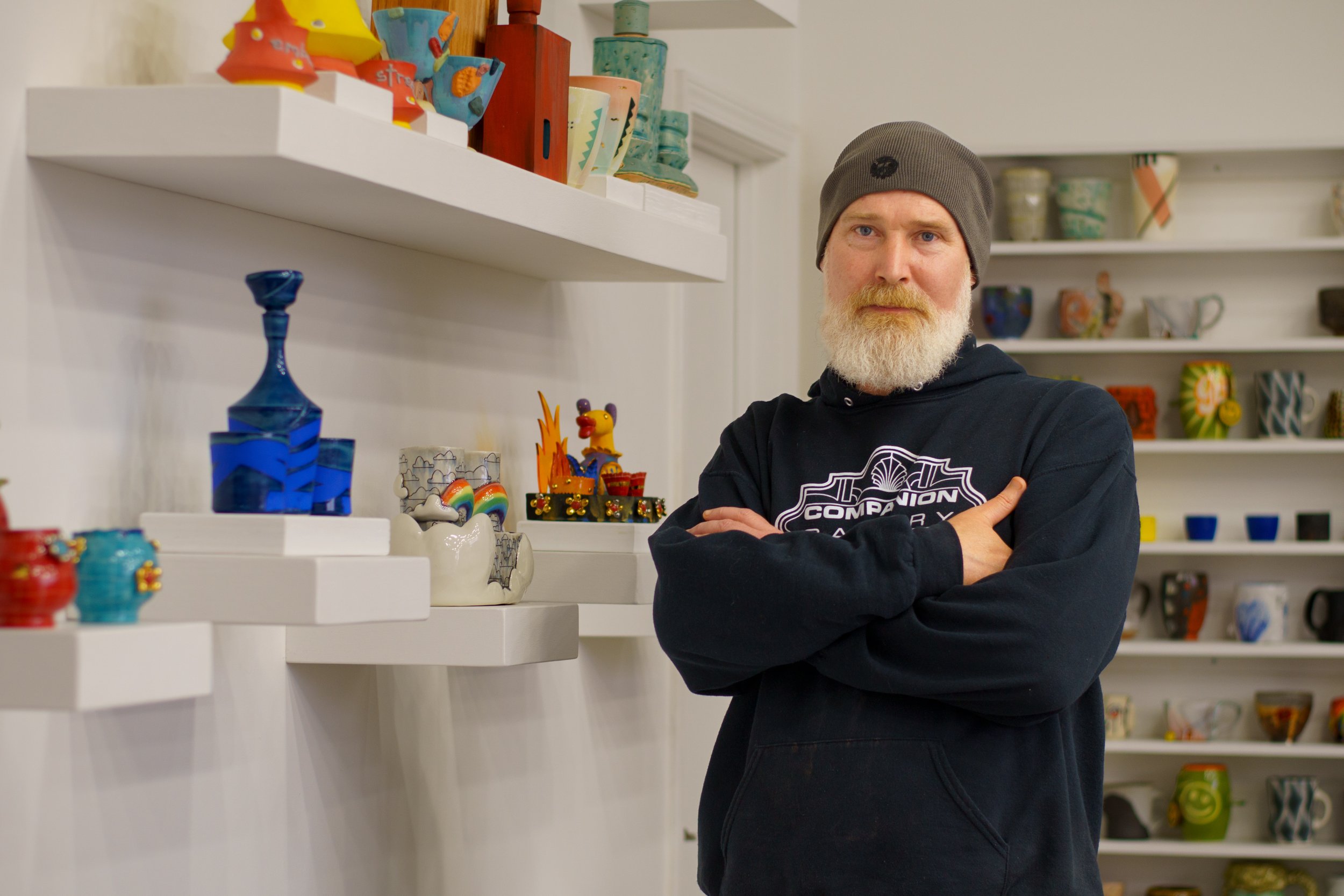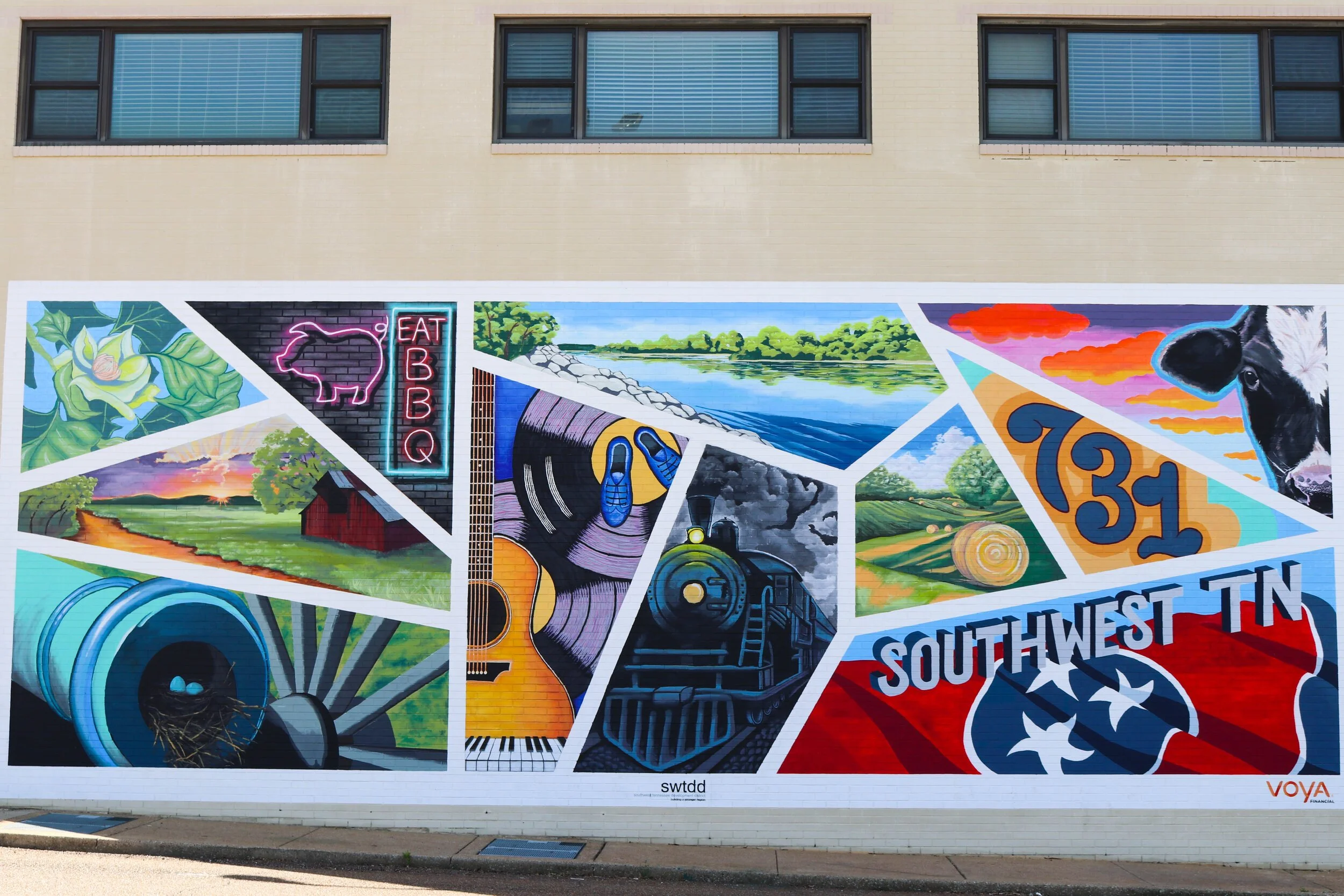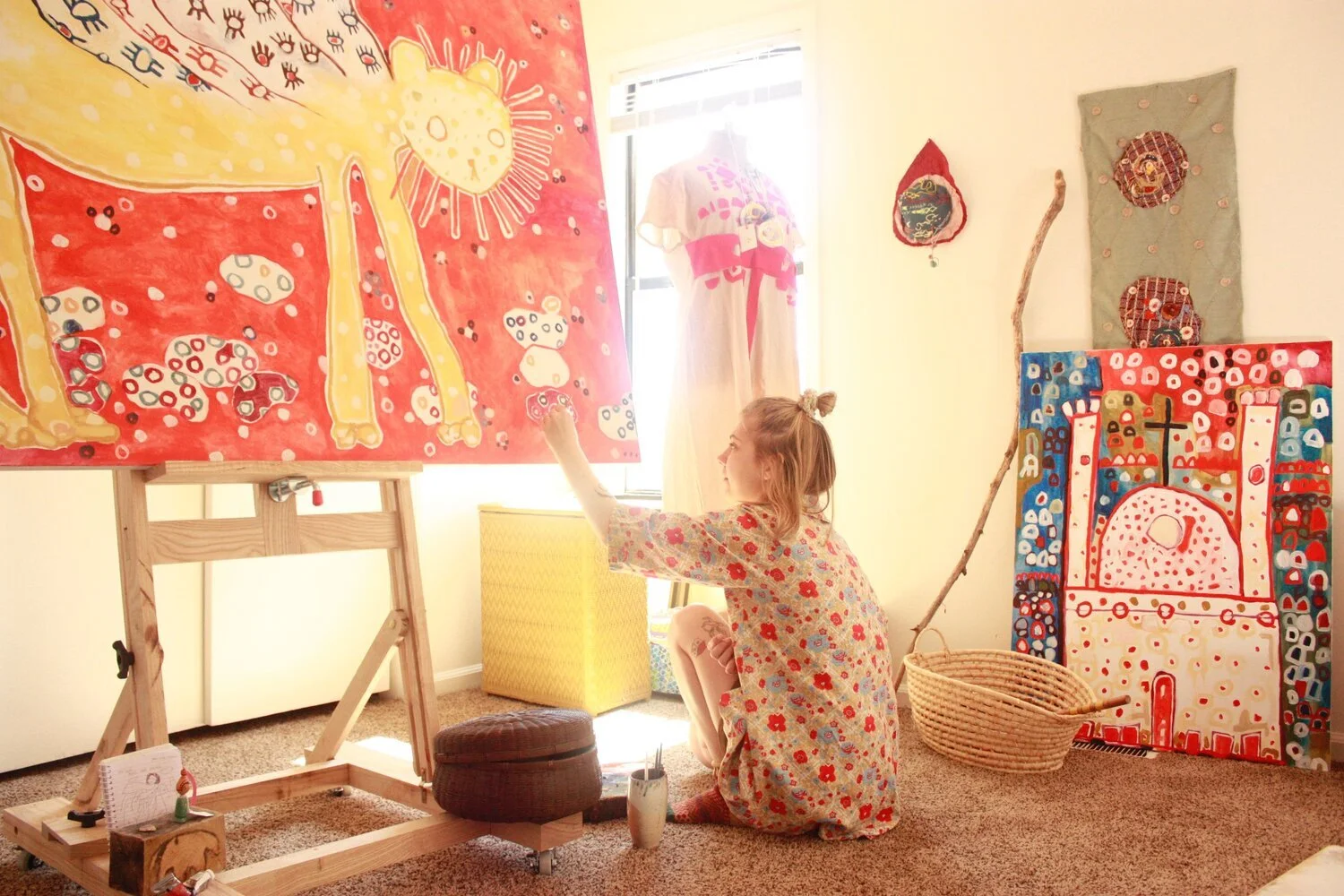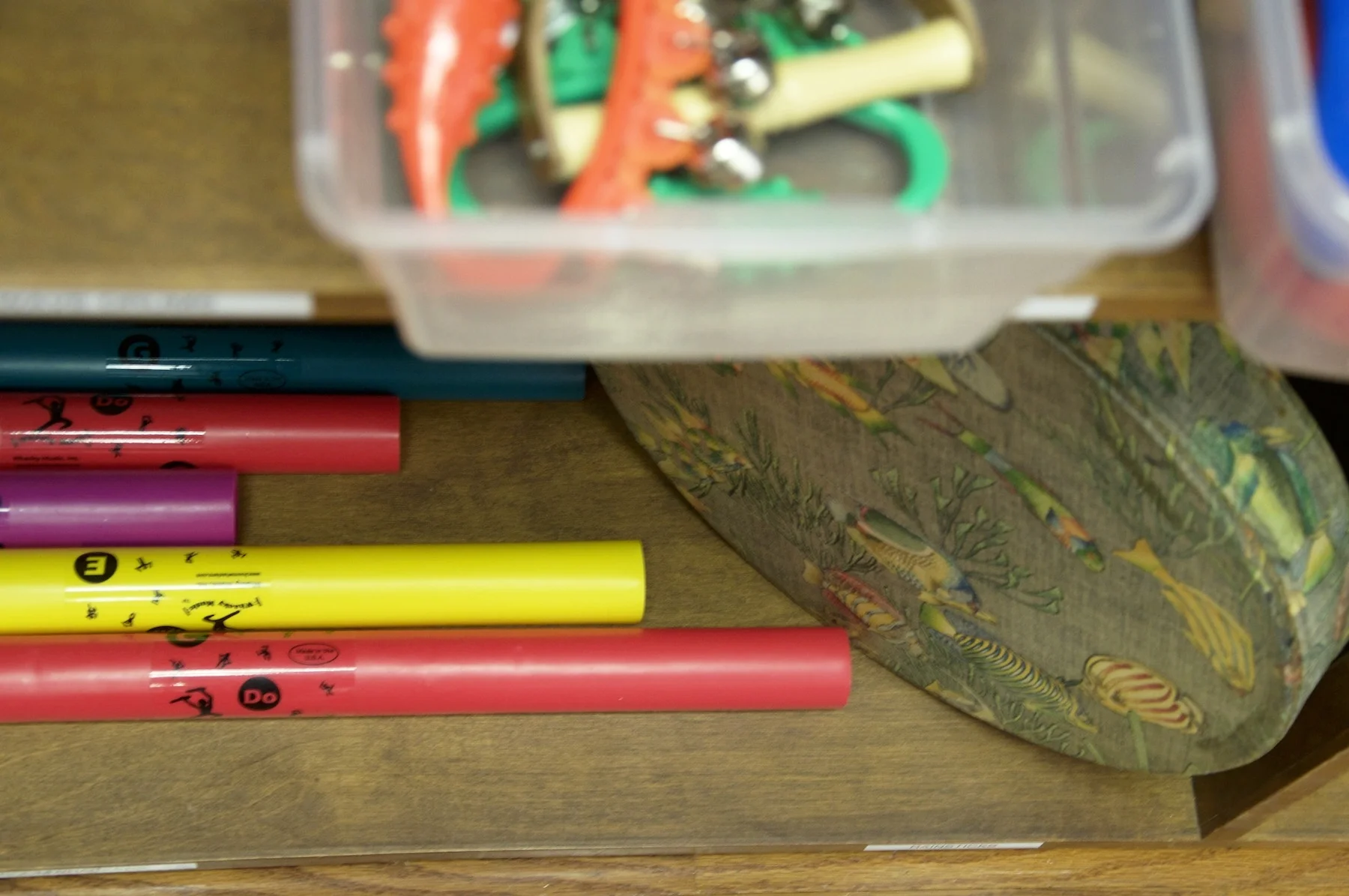A Conversation With: Andrew Peterson
A husband of twenty-one years and the father of three teens, Andrew Peterson is a Christian singer-songwriter and author based out of Nashville, Tennessee. Since moving there from the homeland he lovingly calls "redneck Florida," Andrew has produced seventeen albums and written a four-part book series, The Wingfeather Saga.
The Star Center has the joy of welcoming Andrew to Jackson this Saturday, February 20, for a concert at Fellowship Bible Church benefiting their Literacy Lab scholarships. Our Jackson Home's Katie Howerton got the chance to speak with Andrew to learn a little more of his story and to discover why literacy and storytelling mean so much to him.
How did you first come to fall in love with songwriting and literature?
I think as long as I can remember I was drawn to that stuff. I was the only left-handed kid in my family and always kind of, you know, had my head in the clouds. I was always very imaginative and drawn to music. I was the only musician of my family, too, out of the four of us kids. . . . The arts—whether it was, you know, really cool illustrations or comic books or movies or music or the books I was reading—there’s was always something that spoke to me in way that . . . I more than just enjoyed those things; I wanted to crawl inside of them.
So like when I first started listening to music earnestly—like really falling in love with music—it wasn’t enough for me to just listen to the music. I wanted to get a guitar and learn how to play the music, you know what I mean? I wanted to step inside the room where the music was being made. And then after that it was like, “Now that I’ve done that, I want to write a song. I want to be inside of the process of creating it.”
So I don’t know, I’ve always had this fascination with looking under the hood and trying to figure out how something like that works.
“I more than just enjoyed those things; I wanted to crawl inside of them.”
Where did the transition come between songwriting and book-writing? Was that a recent development?
It’s funny, I think of it as a recent development, but, if I look at the calendar, I realize that was ten years ago! You know, I’ve always loved books. I’ve always been interested in stories, and the written word had always been interesting to me. And, you know, like a lot of people I was always in my mind telling myself, “One day you’re gonna write a novel. One day you’re gonna write a novel.” And, you know, nobody writes a novel by accident. It takes a lot of work, a lot of, like, serious self-discipline. Like, you have to resolve to write a book, I think.
I think it was because I had been playing music professionally for . . . I don’t know . . . eight or ten years? I had begun to understand some things about how the creative life works. And so, you know, it used to be—when I was a kid and was writing songs—it was all fun. It was like, “Oh, that’s cool!” And if I wasn’t in the mood, I wouldn’t do it. But when you move to Nashville and you have a wife and you have kids, you realize that creativity happens because you’re working. It’s not this thing that always falls out of the sky. Sometimes it does fall out of the sky into your lap, but most of the time you have to be working and kind of, like, have your ball gloves on and are proven to catch the ball.
So I think I’ve learned a lot of stuff. You know, I’ve learned about discipline. . . . Those are all things that I did not know ten years earlier when I was thinking, “One day I’m gonna write a novel!” And, you know, you write the first chapter and get really excited for about thirty-six hours, and then you abandon it. That’s what most of us do! But I don’t know, there just came this moment where I just was so sick of myself and so sick of only talking about writing a book. I was like, “I’ve got to figure out a way to make this thing happen.”
And it took my brother, my older brother, who was always the better writer. Still is. And he and I had a contest and said, “Alright, you and I have both talked about writing novels. Let’s have a contest to see who can finish the first book.” And so it was some definitely brotherly competition. He ended up writing this wonderful book called The Fiddler’s Gun. It’s a Revolutionary War era adventure and a two-part series. So he won the contest; he wrote the book first. But I got mine published first, so I kind of brag about that to him!
“Creativity happens because you’re working. . . . Sometimes it does fall out of the sky into your lap, but most of the time you have to be working and kind of, like, have your ball gloves on and are proven to catch the ball.”
Why do feel like books are important to creativity?
Well, I think that there’s a lot of answers to that question. One of them is that I’m very, very thankful that I grew up in a home where reading and books were valued. And part of that is because I grew up in a Christian home, and I think in some ways, in the best-case scenario, a Christian home of all places is a place that values great stories.
And so I grew up with this dad who as a pastor was basically a professional storyteller. Every single week he had to write a story that he would tell to the audience that would hopefully unlock something of what he believed was the truth to these people. And growing up in the South, we all know the South is like, I mean . . . If you want to learn how to tell stories (laughing), there’s, like, little better way to do it than to grow up in a place where people, where the language is really colorful and interesting and where there are colloquialisms that are wonderful. And so growing up in the South is huge, but a lot of it was just that my home as a kid was lined with books. Like, my dad’s office was just packed with books on theology. But it wasn’t just theology; it was Shakespeare and Mark Twain and Edgar Allan Poe . . . like Huck Finn. I remember as a boy understanding without having to be told that stories and books and words mattered—that a good way to live is to value these things.
So that carried on over into my life, and so, like, now that I’m older, like I said, I keep going back to this idea that I enjoy the mystery of kind of, like, trying to peek through the curtain or look under the hood of the car and go, “Wait, wait, wait. Why—why did the movie The Raiders of the Lost Ark make me feel the way that it made me feel when I saw it the first time?” You know? Or why Star Wars, for crying out loud? Or why Harry Potter? Like, why did these stories resonate with millions of people and do this amazing work? And I think it’s because we are creatures . . .
(Okay, I’m going way out on a limb here. I’m making this up, so you know.)
We are creatures that exist in time. And in order for something . . . How do I put this? Like, because of the fact that we’re creatures of eternity who are living in these temporal bodies, like, God wants us to experience his glory and his love. So time stretches out a truth into a story. And so the same way, if you have a symphony, and you play all of the notes of the symphony at once, (laughing) we are not able to understand the symphony until we grab it and we stretch it out over time. And now all of these notes are spread out in such a way that they add to the flow, and there are minor notes and major keys. Like, it ends up telling a story.
“Everybody out there in the world is hungry for some kind of meaning or truth, and books are one of the most direct ways that people can experience that.”
So the same thing’s true. Like, God has this inherent truth and goodness, and it’s like he wants these finite creatures to understand his truth and his goodness. How is he gonna convey that to us? Is he gonna convey it by playing all the notes of the symphony at one time? (laughing) Because we aren’t built to understand it that way. So what does God do? He gives us time, and he stretches the thing out. And time creates the arena in which God’s love can be experienced by us through means of a story or through means of music. And so that’s what the gospel is! You know, the heart of the whole thing. Scripture is one big, epic tale. The gospel story’s that way.
So I’m so interested in the fact that, like, there’s this verse in John where it says that Jesus didn’t say anything without speaking in a parable. He was always using parables. So God chose stories as a way—as the best way, perhaps—to convey the truth to people. And so what that does is it sanctifies storytelling. It means that when you walk into the library, you’re not just . . . I mean, there’s goods books, and there’s bad books, but you’re walking in, and you’re experiencing very directly the outplaying of God’s image in mankind. Like, we love stories. We’ve always been fascinated with mythology or the bards that sing, you know, the tales and history.
So, like, humankind is made to experience the truth in this way, I believe. And so what a tremendous gift it is to help people who might not otherwise be able to experience “story” to do so! So, well, there’s this quote, and I don’t know who said it first, but I love it, and it’s “If you want someone to know the truth, you tell them. If you want someone to love the truth, tell them a story.” And I think that kind of sums up a lot of what I love about what I get to do. Or the thing that fascinates me (whether it’s music or stories) is that I think everybody out there in the world is hungry for some kind of meaning or truth, and books are one of the most direct ways that people can experience that.
So I’m all about it! (laughing)
“Art nourishes community, and community nourishes art.”
You clearly moved to the Nashville area for music primarily, but what has made you stick? Have you found a sense of true community there, or are you touring so much that it’s hard to?
Yes, music is what brought me here, but community is what has kept me here. It’s been a slow journey, it’s been, like, a slow realization. The Rabbit Room is this website that I’m a part of that celebrates this kind of idea in a lot of ways. But one of the things that we say is that art nourishes community, and community nourishes art. So I moved to this town and immediately recognized the fact that I was not as good of a writer as everybody that I knew (laughing). And I still feel that way, to be honest. Like I just played a show a couple nights ago, and I looked around, and I was like, “I have got so much work to do. I can’t even start!” So after all that time I recognized very clearly the fact that some people may be able to be an artist in isolation, but I think most people, if you want to, like, improve your craft, you’ve got to be around people who are better than you.
But not only that, but living in community—like true friendships with one another. That informs your art in a really beautiful way. But another cool thing is that art brings people together, you know? The creation of songs or books or paintings—whatever it may be—actually is this avenue through which people find one another. It’s like an excuse to hang out.
We have this show called The Local Show that kind of does what you’re talking about. It was a bunch of traveling musicians in Nashville, and we hardly ever play in town because we’re tired. You know, we come home, and my guitar doesn’t usually get out of the case from one weekend to the next. I fly home, and it goes in the car, and then life happens. And I don’t play, and I don’t see my friends either because, you know, everybody’s got families and whatever. And so The Local Show was started by The Rabbit Room as an excuse for people who actually lived in the same community to see one another and to make music. And so it’s been so cool to see friendships take root, and it’s all because of art. Art kind of is the avenue through which these friendships are being nourished.
So I’m a big Wendell Berry fan. I don’t know if you guys are familiar with him, but it sounds like his philosophy on “staying put” is a part of what you’re doing, and I wholeheartedly agree with it—that our American culture is crippled by the fact that people are so transient. That there’s so few communities where people actually stay put generationally. And every time those generations are split up, the story of that family—the story of that person—becomes disconnected from where they are, and it’s to the impoverishment of the community, I think.
I love what you guys are doing. I love the fact that you’re pushing back at that cultural transience that’s been happening.
Make sure to be at the Star Center concert this Saturday, February 20, at 6:30 p.m. Fellowship Bible Church to hear Andrew's fantastic music and to support literacy in Jackson . . . and to purchase our freshly released Vol. 2, Issue 1: Discovery! Purchase concert tickets here.
To learn more about Andrew Peterson, his music, and his books, visit his website, and make sure to follow him on Instagram, Twitter, and Facebook.
Originally from Murfreesboro, Tennessee, Katie Howerton moved to Jackson in 2011 to study Graphic Design and Drawing at Union University. She discovered Our Jackson Home in January 2015 and used it as a guinea pig for her senior design project, creating the first issue of Our Jackson Home: The Magazine. After graduating she was given leadership over Our Jackson Home at theCO, where she now runs the blog, designs the magazine, and coordinates events. She and her husband Jordan live in Midtown and are active members of City Fellowship Baptist Church.
Photography provided by Andrew Peterson.






